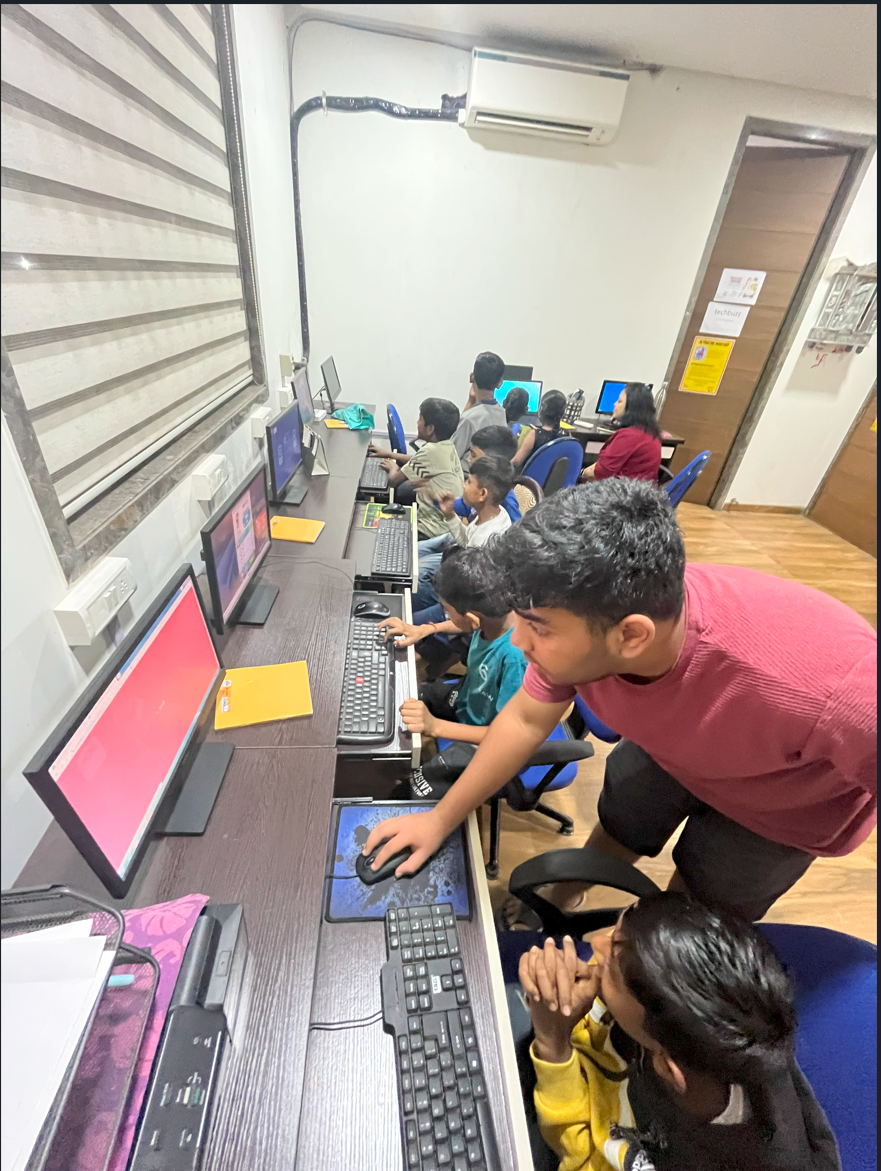As part of our CAS project, we planned a thorough bootcamp to teach kids the basics of coding and computers. We worked together with DISHA, a non-profit organisation devoted to empowering underprivileged youth. The eagerness with which these children participated in our programme was not only encouraging, but it also served as a reminder of the significance of ensuring that everyone has access to fundamental digital skills in order to close the digital divide and promote a better future.
2- There were several difficulties in working together when teaching computer classes. We had to organise our teaching methods, prepare lessons, and cater to the needs of various students. I had to leave my comfort zone as a result of this encounter. I had to learn as well as impart knowledge. I gained knowledge on how to design engaging lesson plans, handle technical difficulties, and modify my instruction in response to students’ comments.
3- Starting and organising this CAS experience took great consideration and planning. My partner and I came to the conclusion that computer education was necessary for our community, especially for students who are underprivileged. So, we developed a comprehensive strategy. We prepared lesson plans, gathered the appropriate materials, and set clear objectives for what we intended to teach. To set up the programmes, we also contacted neighbourhood community centres and schools. And the project had a proper flow only because we had planned everything properly in advance.
4- There were certain difficulties involved with teaching computer classes. Technical problems periodically caused our courses to be disrupted, and students occasionally had trouble understanding particular concepts. But my partner and I didn’t give up, though. We never stopped exploring solutions to these issues and ways to enhance our instruction. We learned through this experience how crucial it is to maintain commitment and perseverance in the face of challenges and difficult situations. It demonstrated to us the power of perseverance in conquering challenges.
5- It was wonderful working together with my teaching partner. We worked well together because we each brought a variety of skills to the table and encouraged one another to develop our weaknesses. This collaboration improved our teaching while also fostering a sense of community among our students. They discovered the power of collaboration and how different perspectives can lead to creative solutions. It was a fantastic lesson in the value of teamwork and creativity.
6- Our project was in line with the Quality Education Sustainable Development Goal (SDG 4). We sought to close the digital gap and advance equal access to education by teaching digital literacy skills to underprivileged kids. In line with SDG 4 goals, we worked to equip these young students with useful digital skills as well as to promote an inclusive and equitable future.
7- Teaching computer classes made me consider ethics a lot. We had a duty to ensure that our pupils used technology in an ethical and responsible manner. This experience has given me a better understanding of the ethical implications of technology and how education may assist students learn to use it responsibly. It was important for us to have a conversation with our pupils about topics like online safety, respecting others’ privacy, and using technology for good. It’s crucial because technology can have both beneficial and detrimental effects, and as educators, we want to help our students make decisions that are moral and responsible in the digital age.
